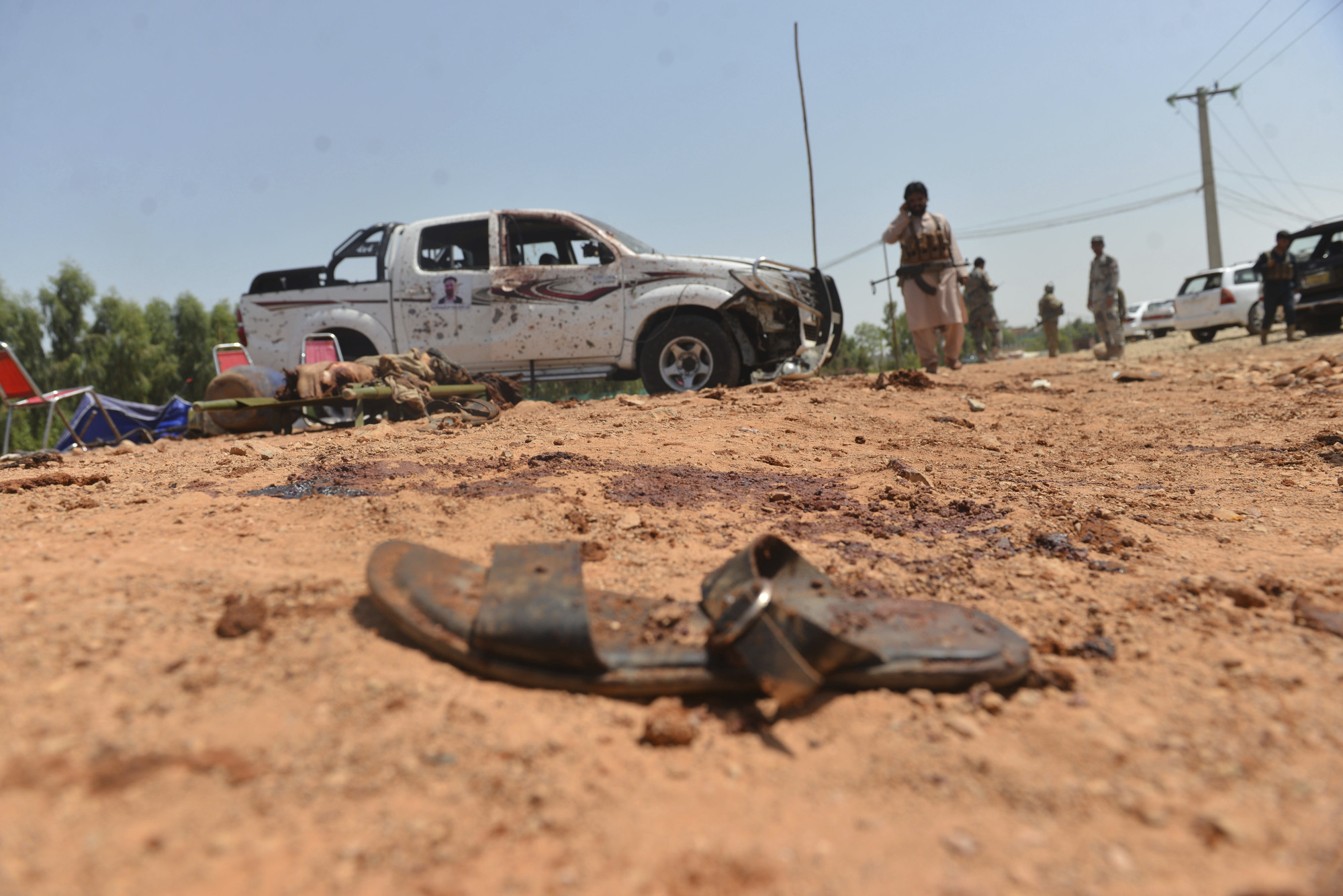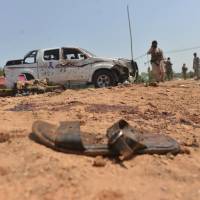The head of Islamic State in Afghanistan, Abu Saad Erhabi, was killed in a strike on the group's hideouts in Nangarhar province on Saturday night, authorities said on Sunday.
Ten other members of the militant group were also killed in a joint ground and air operation by Afghan and foreign forces, the National Directorate of Security in Kabul said in a statement.
A large amount of heavy and light weapons and ammunition were destroyed during raids on two Islamic State hideouts.
The jihadi group's Aamaq's news agency carried no comment on the issue.
Lt. Col. Martin O'Donnell, a spokesman for U.S. forces in Afghanistan, said the United States carried out a strike in Afghanistan on Saturday against a "senior leader of a designated terrorist organization."
The provincial governor of Nangarhar said Erhabi was the fourth Islamic State leader in Afghanistan to be killed since July 2017.
The group has developed a stronghold in Nangarhar, on Afghanistan's porous eastern border with Pakistan, and become one of the country's most dangerous militant groups.
The local affiliate of Islamic State, sometimes known as Islamic State Khorasan (ISIS-K) after an old name for the region that includes Afghanistan, has been active since 2015, fighting the Taliban as well as Afghan and U.S. forces.
Former ISIS-K leader Abu Sayed was killed in a strike in the eastern province of Nangarhar and Sayed's predecessors were killed in joint U.S. and Afghan operations.
The exact number of Islamic State fighters in Afghanistan is difficult to calculate because they frequently switch allegiances, but the U.S. military estimates there are about 2,000.
More than 150 Islamic State fighters surrendered to Afghan security forces this month in the northwestern province of Jawzjan, where the group is fighting for control of smuggling routes into neighboring Turkmenistan.



















With your current subscription plan you can comment on stories. However, before writing your first comment, please create a display name in the Profile section of your subscriber account page.